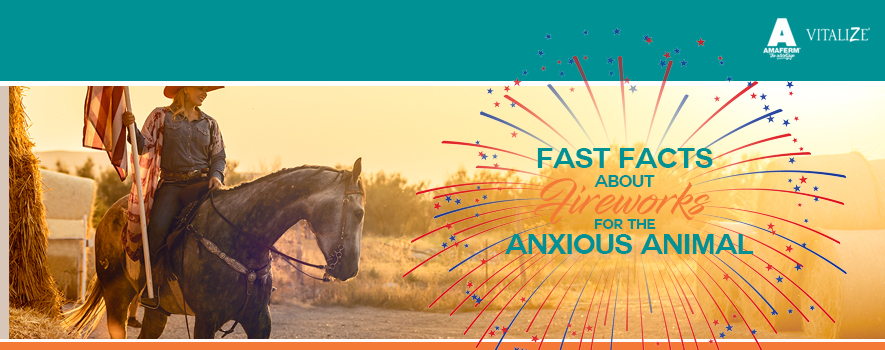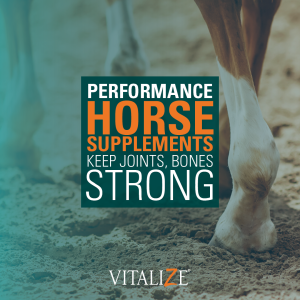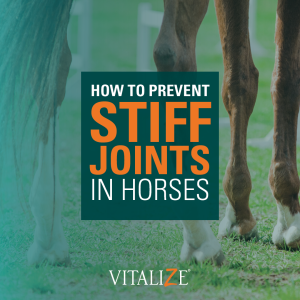
Fireworks! While they are enjoyable for us humans, they can be an enormous stressor for our animals. According to the American Humane Association, July 5th is the most active day of the year for animal shelters. Without proper prevention, dogs can end up in a state of panic causing them to get lost, injured, or even killed during these festivities. Approximately 15-20% of the animals who enter the shelter will not be reunited with their owners (ASPCA)! Additionally, horses are prey animals by nature, so loud noises (such as firecrackers) can easily send them running through a fence and onto a busy road… creating chaos for others and a liability for you. During this time of high anxiety in animals, it is important to remember these fast facts for Independence Day.
-
-
- Keep Animals Inside
Be aware that many people shoot off fireworks in the days before and after the Fourth of July. If your horses go outside at night, consider keeping them in the barn for the 4th of July evening if you live in an area of high firework volume. However, if you know your horse will not mind the fireworks, do not disrupt his or her normal schedule. - Identification
Make sure your animal is wearing updated and legible identification. If you leave your horse outside and worry about his security, securely braiding a cattle tag into the mane or using “paintstiks” on the body are common tools people use prior to natural disasters, but they can also serve as identification during firework season. Although halters would be the easiest option, leather ones can be easily pulled off or broken (removing the identification altogether) and nylon halters will not break and could cause further stress if caught on a gate or fence. - Exercise Early
Getting in some exercise before the activities begin is a great way to burn off some steam. This will create sleepy animals who are more likely to snooze through the eventful evening and help reduce any stress they may have about fireworks. - Know the Signs of Anxiety
Animals have many ways of showing anxiety, so it is important to know these signs in your animal to anticipate and prevent any negative outcomes.Horses’ signs include: Pacing, Pawing, Spooking, Trembling, “Nervous eye”, Digestive upset, Decrease in appetiteIt is particularly crucial to be prepared for horse anxiety due to the risk of colic. Make sure your horse has a good amount of hay and water when you tuck him in for the night; the forage will help keep his digestion system running and reduce the chance of colic during this stressful time. However, since some choose not to eat when stressed, this is an ideal time to give Vitalize Equine Recovery Gel to your horse and dog. The gel contains Amaferm® and MOS, ingredients which aid in stress relief, immune function, and digestibility. Give your horse a full 30 mL tube (up to two times daily) during this stressful time. - Noise Barriers & Distractions
Turn on the radio in the barn aisle oto help drown out the noises from outside. Horses often wear earplugs for showing, so if yours is acclimated to this, go ahead and put them in to block out some of the noise! However, earplugs in a horse who has never used them may cause them to shake their heads vigorously and become even more anxious.
- Keep Animals Inside
-
- Please keep these fast facts in mind as fireworks begin to shoot off in your neighborhood!

